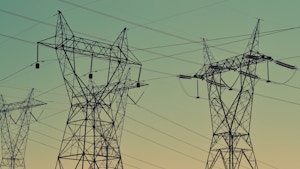Southeast Asia's Clean Energy Transition / Vietnam
All Spotlight on Vietnam stories. Back to Sea's Clean Energy Transition.

Non-profit RimbaWatch says Grab's scheme is based on questionable forest carbon projects. The ride-hailer argues that carbon credits can be a credible means to cut emissions.

Ex-BNP Paribas executive Cyril Dissescou to take over from an interim chief of the joint venture formed to develop renewables and energy storage assets in Southeast Asia and Australia.

EB Studio
Southeast Asia’s transition to clean energy will require cross-border collaboration on infrastructure development and regulatory frameworks, say experts.

Demand for the new class of carbon credits proposed by Singapore's central bank will depend on the integrity of projects, what they can be used for and how effectively risks are addressed, say investors.

SDG 16. Peace
‘The red line is shifting’: Environmental journalists in Asia feel the squeeze on freedom to speak truth to power
For some, environmental issues had felt like safe reporting territory a few years ago, but that is no longer the case. Journalists from India to Thailand share the constraints they face when reporting on powerful governments and corporations.

Indonesia, Vietnam and the Philippines have cancelled almost 13GW of coal projects in 2022, but this is far from what is needed to phase out the fossil fuel over the next two decades, a new report from Global Energy Monitor has revealed.

Sold-out long-term liquified natural gas contracts and project delays may force a rethink for the Philippines, Vietnam and Thailand to rely on previously-forecasted LNG growth, according to a report by global think tank IEEFA.

While the world made some progress in 2022 to address climate change and protect nature, much remains to be done to overcome entrenched interests.

From Asia becoming a key fossil fuel provider to high-tech agriculture, these are the trends that could reshape society and business as the world navigates global uncertainty borne out of the Russian-led conflict in Ukraine.

SDG 13. Climate
Biodiversity loss slipping from public agenda as extreme weather worries Southeast Asians: survey
Floods, heatwaves and landslides now dominate as their top three concerns, as direct impacts from weather extremities are increasingly felt. The climate outlook survey also reflects hesitancy among Southeast Asians to phase out coal immediately.

SDG 9. Infrastructure
The implications of EU’s Carbon Border Adjustment Mechanism for Southeast Asia
Southeast Asian countries should carefully weigh the economic and environmental impacts of unilateral climate policies like the European Union’s Carbon Border Adjustment Mechanism (CBAM).

SDG 13. Climate
Communications in a climate crisis: why Asian PR firm Vero cut ties with fossil fuel firms
Bangkok-based PR agency Vero says there's no excuse for working for fossil fuel brands — even those pivoting to clean energy. "We're in a crisis. There is no time for a journey," says Vero CEO Brian Griffin.

